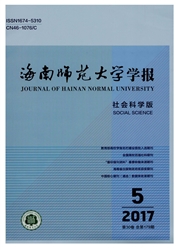

 中文摘要:
中文摘要:
自由主义不是严密统一的思想体系,它包容了众多的思潮流派簇系。受强大传统文化和近现代特殊历史现实的影响,20世纪上半叶,中国的自由主义具有强烈的民族主义色彩、积极自由的唯理主义倾向、儒家实用主义内质和保守立场与激进情绪的并存等特征。20世纪90年代以来,在中国社会转型期特有的外取与溯源并存的文化潮流中,自由主义的研究同时在纵深和面对现实方面取得了很大进展,但其中存在着一股把中国的儒家思想传统和西方自由主义硬性缝合的倾向。这是人们为了消除自身现代性的焦虑而进行的一种先设而后证的行为,应当引起学术界的警惕。
 英文摘要:
英文摘要:
Liberalism is inclusive of numerous systems of ideological trends rather than a strict and unified ideological system. Under the impact of the powerful traditional culture and the special historical reality in modern times,China's liberalism was in the first half of the 20th century marked by distinctive nationalism,the positive and free trend of rationalism,Confucian pragmatism essence as well as the coexistence of the conservative stance and the radical mood,etc. Since the 1990s,while studies on liberalism has seen much progress in its depth and its approach to reality under the cultural tide of the coexistence of learning from others and tracing one's own source unique to the transition period of the Chinese society,there is still a tendency to indiscriminately blend China's Confucianism tradition with western liberalism—an act conducted without preliminary testimony to remove one's own anxiety of modernity—against which the academia should be vigilant.
 同期刊论文项目
同期刊论文项目
 同项目期刊论文
同项目期刊论文
 期刊信息
期刊信息
